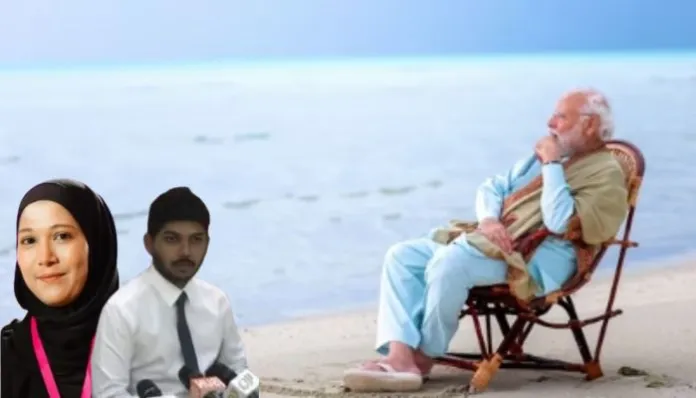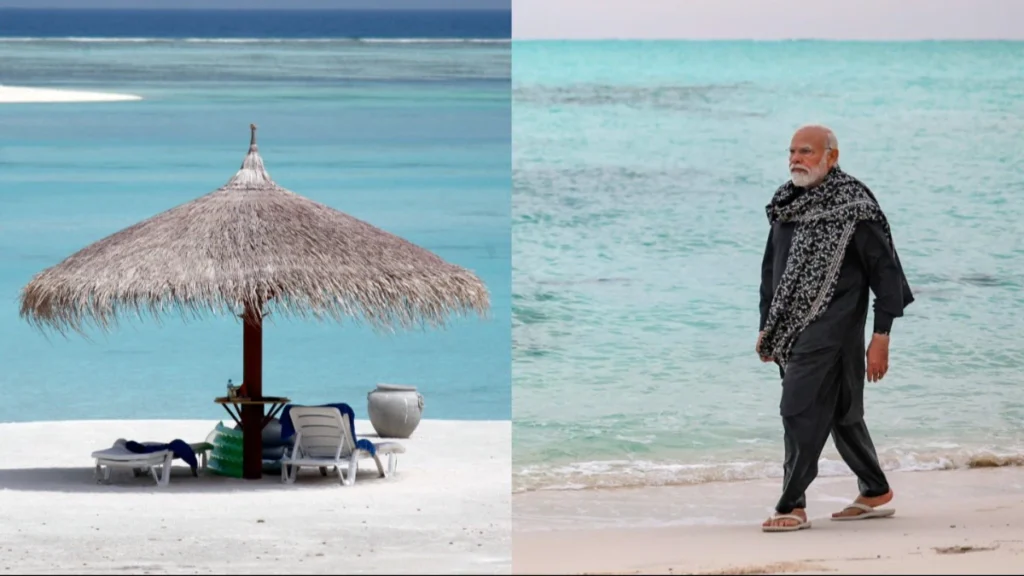
Diplomatic Dispute Spurs Tourism Crisis: Calls to Boycott Maldives Affect Bookings
Social media posts by Maldivian officials, including insults directed at India’s Prime Minister Narendra Modi, have triggered a diplomatic dispute that is now impacting tourism. Calls by Indian travelers to boycott the Maldives have intensified, leading to a significant drop in bookings and potential losses in tourism revenue for the island nation.
Impact on Tourism:
- Ankit Chaturvedi, Vice President and Global Head of Marketing at Rategain, reported a 40% drop in bookings over the last two days, attributing it to the ongoing diplomatic row.
- Travel bookings to the Maldives have plummeted as a response to the social media posts, and reports suggest a significant number of Indian travelers have canceled their trips to the Maldives.
- EaseMyTrip, a prominent Indian travel booking website, has announced the suspension of flight bookings from India to the Maldives in light of the controversy.
Social Media Uproar:
- The diplomatic row began with social media posts on Narendra Modi’s account, showcasing him snorkeling and meeting people in Lakshadweep. Some interpreted these posts as an attempt to divert visitors from the Maldives.
- Reports indicate that travel agents in India are canceling bookings to the Maldives, removing its photos from websites, and recommending alternative destinations like Lakshadweep, the Andaman Islands, Nicobar Islands, or Sri Lanka.
- The dispute has drawn attention to Lakshadweep, a lesser-known destination, and increased its visibility in the global spotlight.
Tourism Statistics and Potential Losses:
- In 2023, India constituted more than one in 10 arrivals to the Maldives, making it the country’s largest source market for tourism.
- Losses to the Maldives are challenging to estimate, but Chaturvedi highlighted that India drove $380 million worth of tourism to the Maldives last year, signifying its significance to the island nation’s economy.
- If the #BoycottMaldives campaign continues, the economic impact could potentially amount to millions.
Political Background and Online Insults:
- Maldives President Mohamed Muizzu, elected in 2023, campaigned on an “India out” policy, creating tensions with India. Muizzu chose China for his first official state visit, seen as a snub to India.
- Maldivian officials, including Deputy Ministers, engaged in online insults directed at Modi, using derogatory terms such as “clown,” “terrorist,” and “puppet of Israel.” Three officials were subsequently suspended for their social media posts.
Geopolitical Exposure and Industry Impact:
- The incident highlights the travel industry’s vulnerability to local geopolitical affairs and online conflicts. It underscores the interconnectedness of social media, diplomacy, and tourism.
- The potential rescheduling of trips to Lakshadweep by Indian travelers remains uncertain, but Chaturvedi expects the boycott to pass quickly, given the mercurial nature of social media outrage.
Domestic Travel Promotion:
- Amid the controversy, there are calls within India to promote domestic travel, with hashtags like #ExploreIndianIslands gaining traction. This aligns with a broader government agenda encouraging domestic tourism.
: The diplomatic dispute, fueled by social media posts and insults, has led to a significant tourism crisis for the Maldives. The impact on bookings and potential economic losses emphasizes the intricate relationship between social media, international relations, and the tourism industry. The incident also highlights the potential for online conflicts to influence travel patterns and destination choices.

